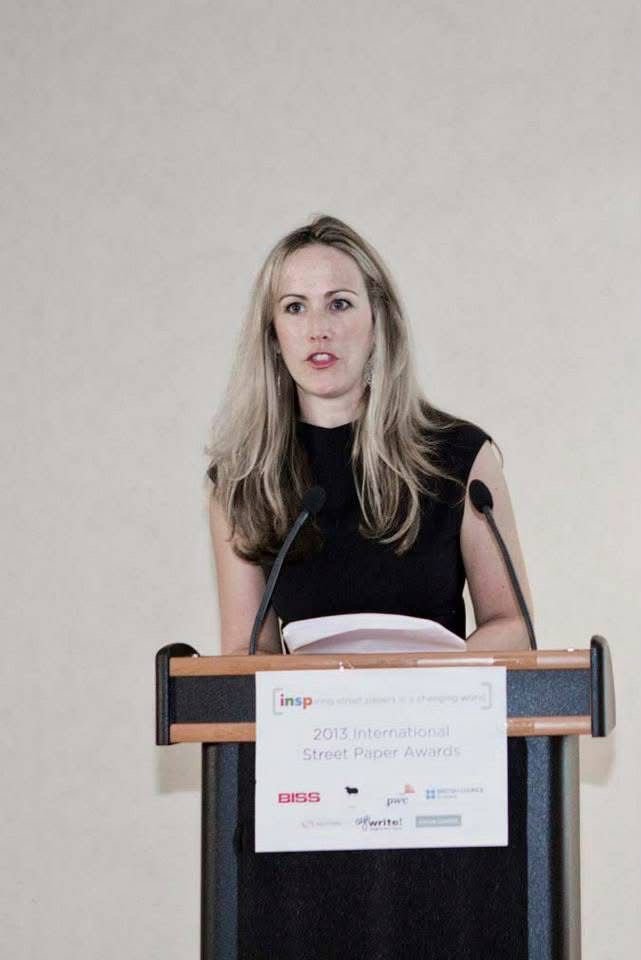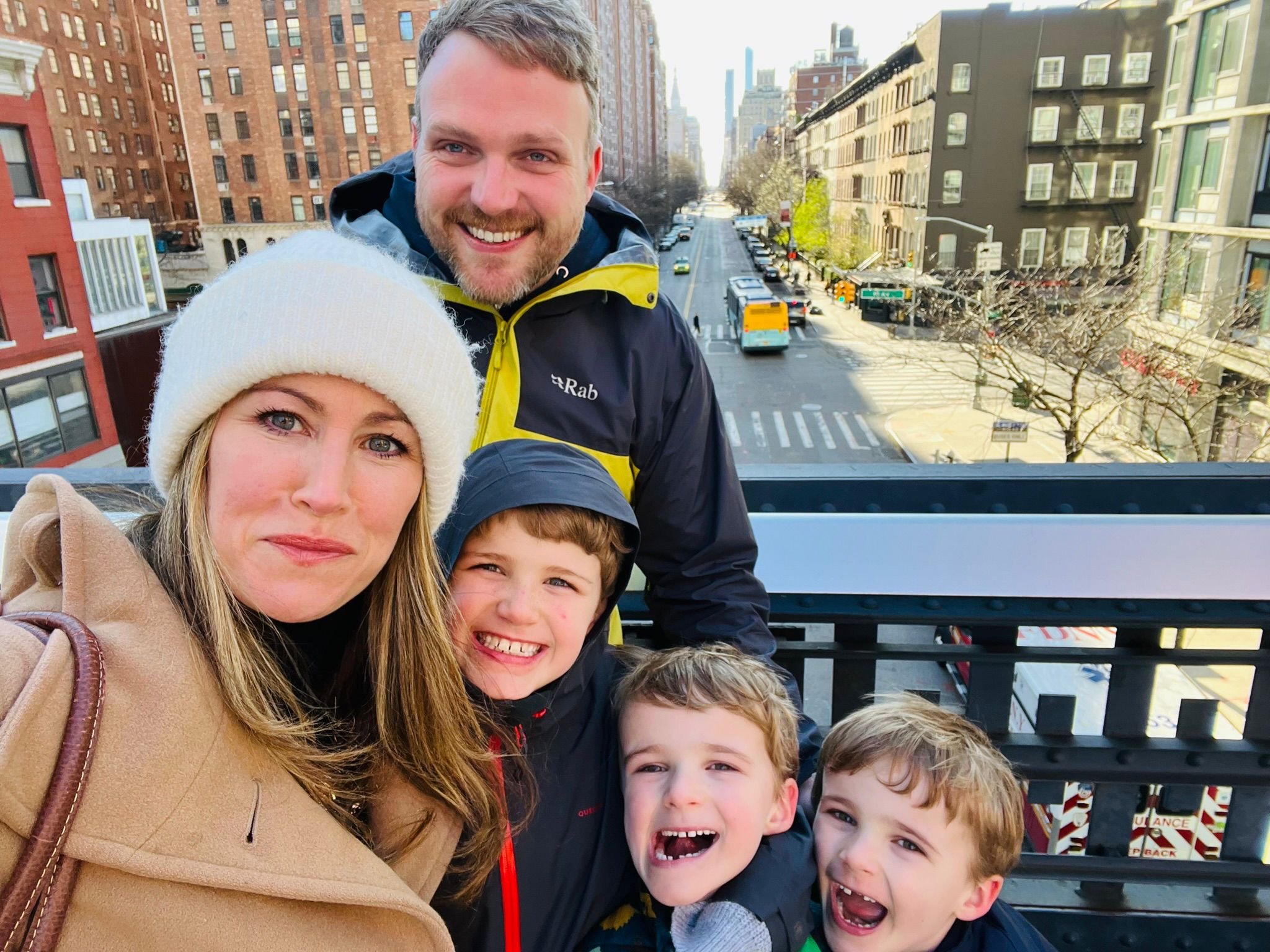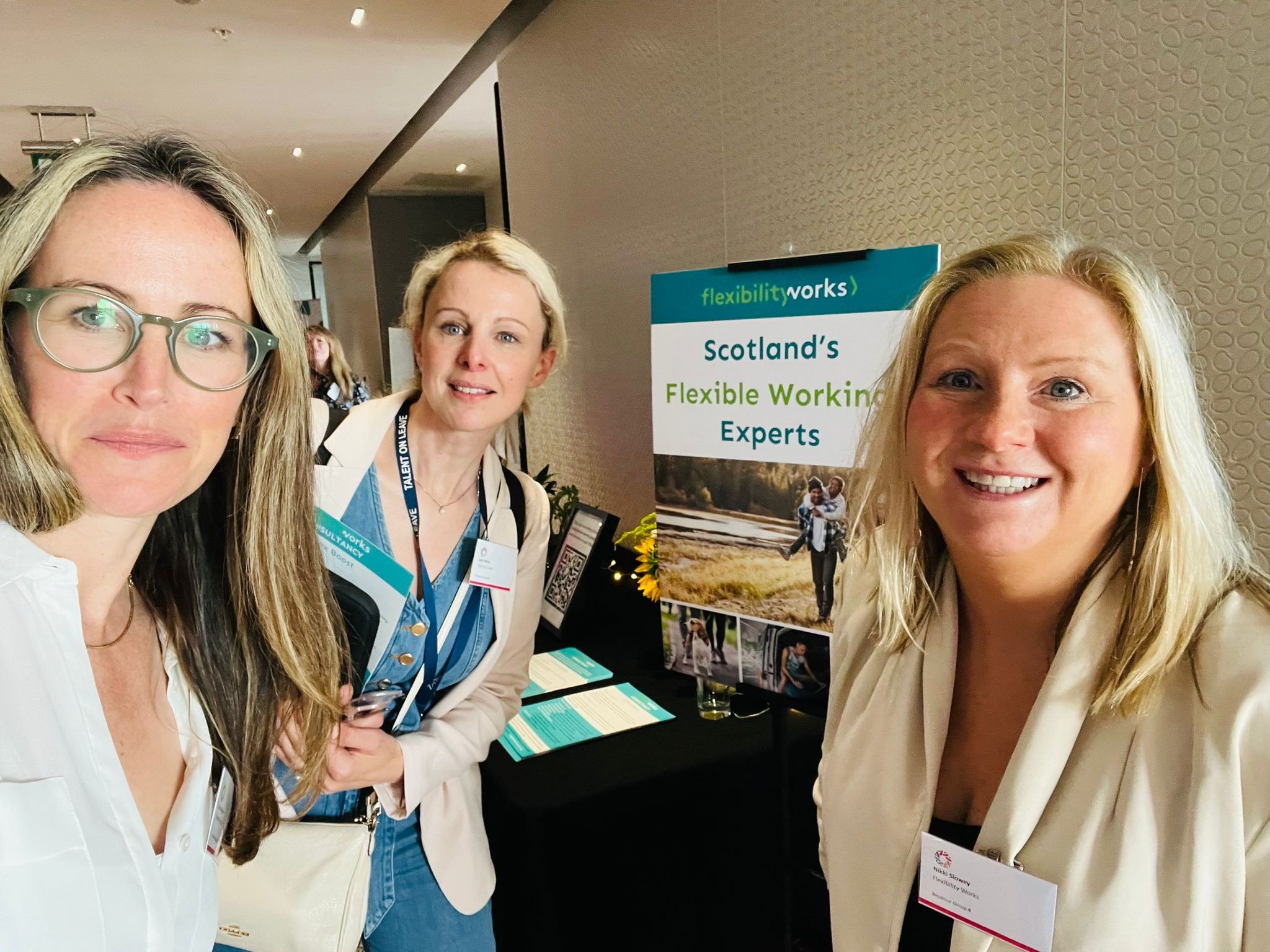lisa gallagher is
relentlessly pioneering
Scotland’s lowest paid industries are often those with the most inflexible working practices. From care to retail and manufacturing, low-income workers have little safety net from falling into unemployment and poverty following the birth of children, an illness or a disability. A staggering 76% of unemployed people looking for work have not applied for, or been forced to turn down a job opportunity, due to a lack of flex. Lisa is pioneering flexible approaches that are keeping workers in jobs and out of poverty.
Like many of Scotland’s changemakers, Lisa has always been driven by social justice. This led to her turning down a graduate trainee position in a large accountancy firm to work in homeless hostels in London, where she thrived on helping others. Lisa is equally motivated by the desire and curiosity to learn, always taking the opportunity to develop new skills and knowledge where she can. Unlike many of Scotland’s changemakers, however, she studied Russian at University and took up a part time job in a charity working on social care projects in Russia and former Soviet states.
Lisa’s curiosity has made her laser focused on the company she keeps, seeking out colleagues and mentors who she feels she can truly learn from. These working relationships have defined the trajectory of her career. The first of these influential connections came through a friend, who told Lisa about a woman called Laylawho worked at The Big Issue in Scotland on international projects in Ukraine and Russia. Lisa’s ears perked up. She saw a post open on Layla’s team, applied and got the job.
Lisa spent the next 11 years working in homelessness, helping to organise the very first Homeless World Cup at The Big Issue, and then running The International Network of Street Papers, coordinating a network of 110 street papers across the world. She learned a huge amount during these years, particularly from her amazing Board Chair Serge Lareault who ran the Montreal street paper, L’Itineraire and also Mel Young of The Homeless World Cup. But her curiosity was beginning to get the better of her, and she knew she needed to leave the world of charity to develop a different set of skills and knowledge. “I felt it was time for a change and time to go and do something new and out of my comfort zone.” Over the last few years, Lisa had regularly pondered setting up an organisation of her own, but her self-doubt had stopped her from pursuing her thoughts further. That was until she discovered that The Saltire Foundation was running an entrepreneurship course in Boston.
Some sponsorship and fundraising later and Lisa was on the plane to Boston, where she spent the next four months learning from experts and thought leaders at Boston College on what it takes to set up and run a business. It culminated in a work placement back in Scotland, where Lisa chose to join activpayroll, a Payroll and HR services company in Aberdeen. The unusual step from charity to corporate HR was again driven by Lisa’s eagerness to work alongside talented people, inspired by the company’s founder, Alison Sellar OBE. “It was just as much about the person as the subject matter.”
After investing her time and energy into developing her business acumen, Lisa was ready to get back in ‘her zone’ and return to the world of social justice. She secured a job transforming lives through creativity. During her time in the position, Lisa learned that she and her husband were expecting their first child. On returning to work after maternity leave, Lisa proposed coming back on a job share basis, working alongside a coworker who had complementary skills. Unfortunately this was turned down as it hadn’t been done before at her company, and it was seen to be too risky. This got her thinking; “If we don’t reorganise or redesign the way that we work, how are we going to have more women in senior positions?” She did more research into the subject and discovered that it wasn’t only mothers suffering from inflexible working. “so many people actually need flexibility to work and live.”
Whether it was remote working, compressed hours, part time or flexible hours, these factors played a huge part in Scottish people's ability to work, and their ability to stay in work. At that moment, Lisa felt all of her experiences, knowledge and passions she had so thoughtfully developed over the last 15 years converge in one idea. She knew she needed to pioneer a new way of doing things. “I’m going to set up a business doing this.”
In the style she’d learned at Babson College, Lisa began hosting workshops, setting up brainstorms and chatting to family and friends around the dinner table (baby often in her arms). During these conversations, she found out about a project called Family Friendly Working Scotland who were already working on some of the issues that she had come to learn about. They had a job ad that was closing that very same day. Lisa put a pin in her business idea, taking up the opportunity to learn even more on the subject. She soon found an incredible mentor in her boss, Nikki, who after a year, suggested to Lisa that they job share her programme director role. “It was so gracious and modest of her. She didn’t have to say or do that.” They discovered that they made brilliant business partners, and soon shared ambitions to set up a flexible working organisation of their own, pioneering new ways of doing things. “We had ideas to grow and have more impact in Scotland.” It was time for Lisa to take out the pin. She and Nikki set up Flexibility Works in 2019.
With COVID just around the corner, it wasn’t long before the co-founders had to pivot and adapt their business to meet the fast-changing realities of a world going into lockdown. It did of course, however, present a huge opportunity for the business. “Covid hugely accelerated the conversation on flexible working. It moved from why should we do it to how we can do it effectively.” From then until now, Lisa and Nikki have implemented training, consultancy, research, events and audits to help scores of businesses across Scotland to flex and enrich employees' lives.
The pair spend their days demonstrating the multifaceted benefits of flexible working. First are the benefits to working people. It enables mums and dads to get back into work and maintain family wellbeing. “A dad who worked in a bank, told us that for him flexible working was leaving 10 minutes early to get home in time to read his son a bedtime story. Just 10 minutes made a huge difference for him.” Flexible hours also help families save money on the likes of after school clubs and activities. It supports individuals with disabilities to secure and sustain jobs. It helps people to prioritise their physical and mental wellbeing, providing them with more time to decompress through mindful practices and exercise. It can even help families earn more money by taking on more hours by working remotely.
Next are the benefits to society. As Lisa first realised back on her maternity leave, a lack of flexibility can hinder certain groups from reaching senior positions. Whether it’s women, people with disabilities, caregivers, single parents, or people from other marginalised backgrounds, flexible working diversifies workforces and supports all employees to climb the ranks, building greater social equity and mobility in our country. It also gets more Scottish people out of unemployment and into work, helping lift families out of poverty. “In a survey amongst people who are unemployed, 76% had turned down a job opportunity because it didn’t offer flexibility. Thanks to pioneering approaches like Lisa and Nikkis, the number of people forced to remain unemployed will decrease.
There are also certain demographics who suffer most from a lack of flexibility. “The group that has the lowest access to flexible working is women on lower incomes, for example in care, manufacturing, retail and hospitality.’ Lisa and Nikki do their best to support businesses in these industries to flex and improve the mental and financial wellbeing of their employees, “enabling a greater equality in our society.” And it’s not just work life that is becoming more equal, it’s home life too. Flexible working fosters a more equal division of labour in the home. With flex hours, fathers can have more time to care for their family and their home.
Finally, there are the benefits to businesses. Flexible working isn’t just the socially just thing to do, it is an intelligent business decision. In fact, 71% of Scottish employers say flex has a positive impact on their organisation. Increased productivity, reduced absenteeism, greater staff retention, improved employee wellbeing, better brand reputation, increased diversity and inclusion and reduced costs are just some of the benefits that Scottish businesses see on working with Flexibility Works.
Flexible working is a no-brainer in improving Scottish businesses, bettering Scottish society and enriching Scottish people’s lives. Lisa’s curious attitude and passion for social justice have led her to pioneer simple yet effective solutions to so many of our nation's challenges. She knows her methods work and she knows that they can achieve even more change for our country. “My mind is always wanting to do more and have more impact. That’s what drives me.”











